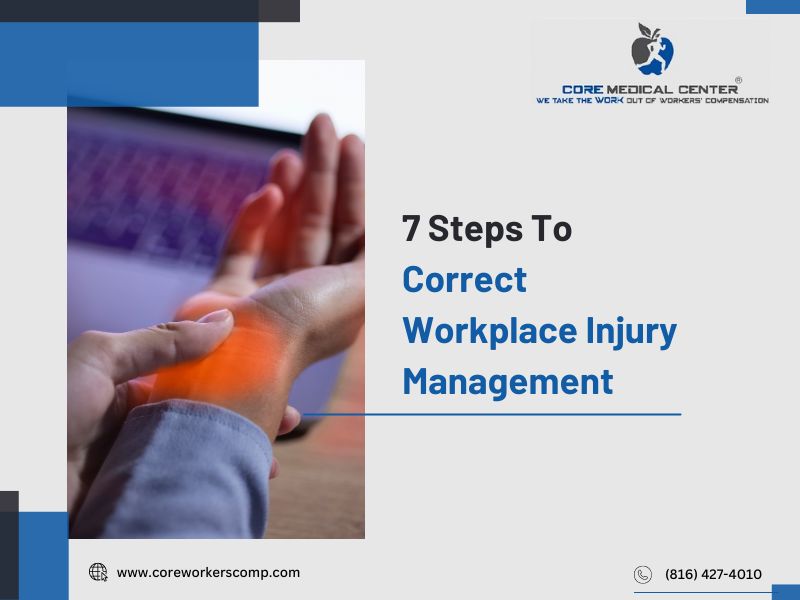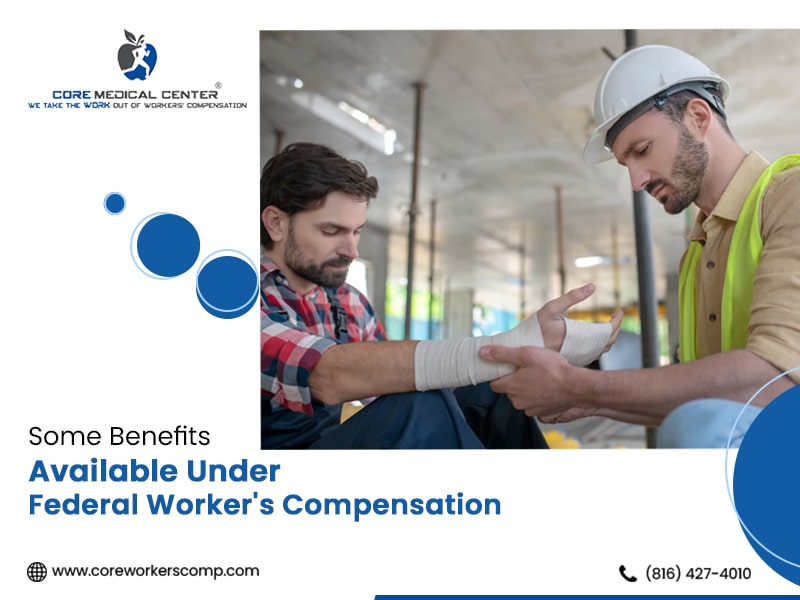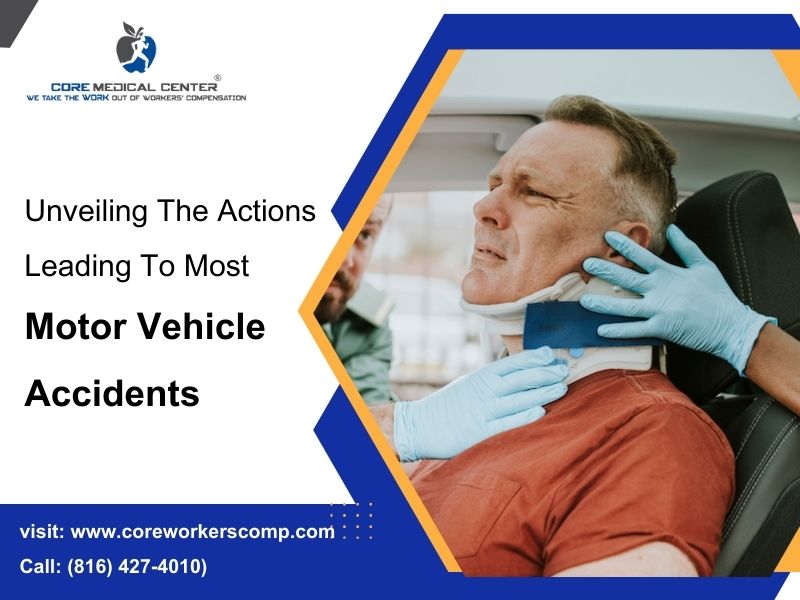Workplace injuries can be disruptive and costly for employees and employers. However, these incidents can be effectively addressed with proper management and support. At Core Medical Center, our specialists provide comprehensive assistance with Federal Worker’s Compensation and Workplace Injury Management Blue Springs. This blog’ll outline seven essential steps to correct workplace injury management.
Let’s begin:-
- Immediate Response and Assessment
- Open Communication and Documentation
- Customized Treatment Plans
- Rehabilitation and Functional Restoration
- Education and Prevention Strategies
- Ongoing Support and Follow-Up
- Compliance with Regulations and Guidelines
Immediate Response and Assessment:
Prompt Action:
It’s crucial to respond promptly to a workplace injury. Ensure that the injured employee receives immediate medical attention and that the incident is documented accurately.
Thorough Assessment:
Our specialists at Core Medical Center conduct comprehensive assessments to diagnose the extent of the injury and develop a tailored treatment plan. We’re equipped to handle various workplace injuries, from minor sprains to more severe injuries.
Open Communication and Documentation:
Clear Communication:
Maintain open communication channels between employees, employers, and healthcare providers throughout the injury management process. Transparency and clarity help ensure everyone is informed and involved in the recovery plan.
Detailed Documentation:
Accurate documentation of the injury, treatment, and recovery progress is essential for legal and administrative purposes. Core Medical Center assists with comprehensive documentation to support Federal Worker’s Compensation claims and other administrative requirements.
Customized Treatment Plans:
Individualized Care:
No two injuries are alike, so our specialists at Core Medical Center create customized treatment plans for each injured employee. From physical therapy to chiropractic care and medical interventions, we tailor our approach to meet individual needs.
Holistic Approach:
Our integrated approach to injury management addresses the physical symptoms and underlying factors contributing to the injury.
Rehabilitation and Functional Restoration:
Focused Rehabilitation:
Following initial treatment, rehabilitation is crucial in restoring function and facilitating a safe return to work. Core Medical Center offers specialized rehabilitation programs to improve strength, flexibility, and overall functional capacity.
Gradual Return to Work:
We work closely with employers to develop gradual return-to-work programs that accommodate the employee’s recovery process while ensuring a smooth transition back to complete duties.
Education and Prevention Strategies:
Empowering Employees:
Education prevents workplace injuries and promotes a safety culture. Our specialists at Core Medical Center provide educational resources and training sessions to enable employees with knowledge about injury prevention techniques, proper ergonomics, and workplace safety practices.
Risk Assessment:
We collaborate with employers to conduct risk assessments and identify potential hazards in the workplace. By addressing ergonomic issues, implementing safety protocols, and promoting healthy workplace habits, we aim to minimize the risk of future injuries.
Ongoing Support and Follow-Up:
Continued Monitoring:
The journey to recovery doesn’t end with initial treatment. Core Medical Center provides ongoing support and follow-up care to monitor progress, address any lingering symptoms, and prevent the recurrence of injuries.
Case Management:
Our team designated for Workplace Injury Management Blue Springs offers comprehensive case management services to ensure injured employees receive the support they need throughout recovery. We coordinate care, communicate with stakeholders, and advocate for the best interests of the injured individual.
Compliance with Regulations and Guidelines:
Legal Compliance:
Core Medical Center stays up-to-date with federal and state regulations regarding workplace injury management and Federal Worker’s Compensation. We ensure that our services comply with all relevant guidelines, providing peace of mind for employers and employees.
Efficient Process:
Our streamlined approach to workplace injury management minimizes administrative burdens and ensures efficient processing of Federal Worker’s Compensation claims and other legal requirements.
Conclusion
Effective workplace injury management requires a proactive and coordinated approach that prioritizes employees’ well-being while supporting employers’ needs. At Core Medical Center, our specialists offer comprehensive assistance with Federal Worker’s Compensation and Workplace Injury Management Blue Springs. Contact Core Medical Center today for our expert services!







Recent Comments